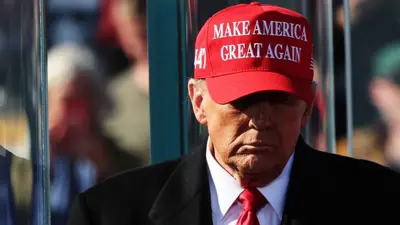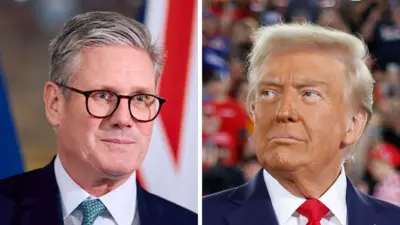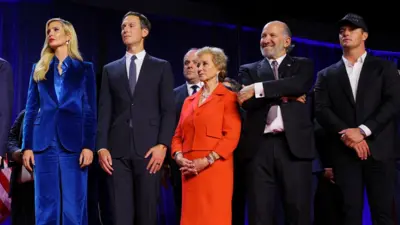We've updated our Privacy and Cookies Policy
We've made some important changes to our Privacy and Cookies Policy and we want you to know what this means for you and your data.
Recall petitions: Electoral Commission appeals for signers' secrecy
Image source, Getty Images/PA Media
- Author, Jayne McCormack
- Role, 91ČČąŹ News NI Political Reporter
Protecting the secrecy of individuals who sign a petition to unseat a sitting MP should be improved, the Electoral Commission has said.
It has reviewed the process, which was used for the first time last year to unsuccessfully recall the Democratic Unionist Party's (DUP) Ian Paisley.
The support of 10% of his North Antrim constituents was required to force a by-election but it fell short by 444 signatures.
The commission has recommended changes.
Recall petitions have been used twice this year.
In May, Fiona Onasanya was the first MP to be removed by the process, which she faced after she was jailed for lying about a speeding offence.
She was expelled by Labour after her conviction and had been representing Peterborough as an independent.
The Conservative MP Chris Davies lost his seat in June after he was convicted of a false expenses claim.
'Secrecy important in democracy'
The commission said that since the Recall of MPs Bill had begun to be used it felt there were areas in the process that had led to "administrative challenges and issues with transparency and secrecy".
It called on the government to review the recall petition policy and make changes reflecting its recommendations.
They include possibly reducing the length of time the petition remains open, suggesting a four-week period instead of the current six weeks.
It also suggested reviewing the recall petition regulations in Northern Ireland to ensure "appropriate access" to inspect the register if there are concerns about fraud at future petitions.
The commission recommended greater clarity about the closing time of signing places on the final day of the petition.
Craig Westwood of the Electoral Commission said: "When you vote at an election the way you have chosen to vote is protected by the secrecy of the ballot.
"But the same is not true at a recall petition - when you enter a signing place it is clear that you are doing so to sign the petition to recall your MP."
He added: "Secrecy is an important principle in our democracy and we have therefore asked the UK government to consider ways to mitigate this."
He suggested one measure could be to introduce an equivalent to the signing sheet for those who oppose the petition.
Top Stories
More to explore
Most read
Content is not available








